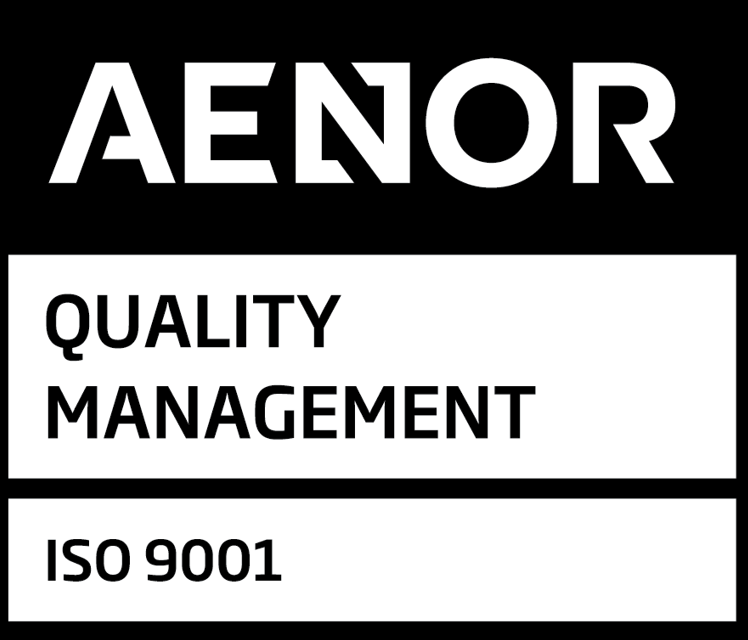
Next-Generation Sequencing Validation & IVDR Compliance Expertise
From custom panel design to bioinformatics validation and IVDR certification-MDx delivers end-to-end NGS solutions including software validation, performance evaluation, and regulatory approval.
NGS Excellence for Global Regulatory Success
Next-generation sequencing technologies require specialized regulatory expertise to navigate the complex landscape of performance validation, bioinformatics compliance, and clinical evidence requirements. MDx CRO delivers comprehensive support for NGS assay development, validation, and regulatory approval-helping you transform groundbreaking genomic technologies into market-ready, compliant diagnostic products.

Our team of molecular biologists, bioinformaticians, and regulatory experts guide you through every phase of NGS product development-from initial assay design through analytical validation, clinical performance studies, and technical documentation for global regulatory submissions. With proven success in certifying complex panels under IVDR, including the first-ever 4000+ gene exome sequencing panel to achieve CE marking, MDx is your trusted partner for NGS regulatory excellence.

NGS Assay Development & Validation
- Analytical performance validation for targeted panels and WES/WGS assays
- Sensitivity, specificity, and precision verification
- Reference material selection and validation strategy
- Variant calling and interpretation workflow validation
- Performance across diverse sample types and quality thresholds
- Limit of detection studies for low-frequency variants

Bioinformatics Pipeline Validation
- Software validation aligned with IEC 62304 requirements
- IVDR-compliant documentation for bioinformatics algorithms
- Pipeline version control and change management
- Verification of variant calling accuracy and reproducibility
- Alignment, variant calling, and annotation validation
- Edge case testing and performance evaluation
- Medical device software classification and documentation

NGS Clinical Performance Studies
- Clinical performance evaluation for diagnostic claims
- Multi-site clinical validation studies
- Sample collection and test site management
- ISO 20916-compliant study design and execution
- Clinical evidence generation for CDx applications
- Patient stratification studies for oncology applications
- Reproducibility across laboratory sites and operators

Regulatory Compliance & Submissions
- IVDR technical documentation for NGS assays and workflows
- Scientific validity reports for genetic biomarkers
- Performance evaluation plans and reports
- Risk management for NGS-specific challenges
- Notified Body submission strategy and support
- FDA submissions for NGS-based tests and platforms
- EMA consultation for companion diagnostics

NGS Panel Types We Support
- Cancer hotspot panels
- Hereditary disease panels
- Pharmacogenomics
- Whole exome
- Clinical exome
- Focused exomes
- RNA-seq
- Gene expression panels
- Fusion detection
Tumor mutation profiling, HRD assessment, therapy selection
- ctDNA analysis
- Minimal residual disease (MRD)
- Microbial identificatio
- AMR detection
- Pathogen panels
Bioinformatics Software Validation
- IEC 62304-compliant development processes & cybersecurity
- Software requirements specification for bioinformatics tools
- Design documentation and architecture validation
- Risk management per ISO 14971 for software components
- Version control and configuration management
- Performance assessment of variant calling algorithms
- Statistical validation of classification methods
- Reference dataset testing and benchmarking
- Edge case testing for complex genomic regions
- Validation of filtering strategies and quality metrics
- End-to-end pipeline validation
- Integration with LIMS and reporting systems
- Data integrity verification across workflow
- Performance qualification under real conditions
- User interface and outputs validation
| Capability |
|---|
| NGS-Specific IVDR Experience |
| Bioinformatics Software Validation |
| NGS Clinical Study Design |
| Large Panel Experience |
| Companion Diagnostic NGS |
| NGS Scientific Validity |
| Global NGS Submissions |
| MDx CRO | Typical Consultants |
|---|---|
Our NGS Validation Process
- NGS technology and assay review
- Regulatory pathway determination
- Gap analysis against requirements
- Validation planning and resource allocation
- Protocol development
- Reference sample selection
- Sensitivity, specificity, and precision testing
- Bioinformatics pipeline verification
- Data analysis and performance evaluation
- Clinical performance study design
- Site selection and qualification
- Sample collection and processing
- Data verification and quality control
- Statistical analysis and claims support
- Technical file compilation
- Software documentation per IEC 62304
- Performance evaluation reports
- Scientific validity assessment
- Risk management documentation
- Notified Body submission management
- Responses to additional information requests
- Post-market surveillance planning
- PMPF study design and implementation
Frequently Asked Questions
Ask us a Question-
How does IVDR classify NGS-based tests?
Most NGS-based diagnostic tests fall into IVDR Class C due to their intended purpose (often providing high-risk individual risk information) or Class D if used for infectious disease with high public health risk. Classification depends on the specific claims, intended use, and risk profile of your test.
-
What are the key challenges in validating NGS bioinformatics pipelines?
Key challenges include demonstrating consistent performance across diverse samples, validating variant calling accuracy, establishing version control, documenting algorithm specifications per IEC 62304, and proving clinical validity of detected variants. Our approach addresses each challenge with specialized protocols and documentation templates.
-
How can laboratories transition from LDTs to IVDR-compliant NGS assays?
Transitioning requires implementing a compliant 13485 QMS, developing comprehensive technical documentation, validating both wet lab and bioinformatics components, generating clinical evidence, and preparing for Notified Body assessment. MDx offers a structured transition program specifically for laboratories making this change.
-
What experience does MDx have with NGS companion diagnostics?
We have supported multiple NGS CDx programs that involved EMA consultation, pharmaceutically aligned clinical studies, and simultaneous FDA and IVDR submissions. Our expertise covers both IHC and NGS-based CDx strategies with indications spanning oncology, rare disease, and immunology.
-
How do you validate the clinical performance of an NGS test?
We design ISO 20916-compliant clinical performance studies that demonstrate the assay’s ability to correctly identify the clinical condition or genetic status or data is gathered through published experience in routine diagnostic testing. This involves careful study design, reference method comparison, site selection, sample processing protocols, and statistical analysis plans tailored to the specific NGS technology and claims.
-
Can MDx support both commercial kit development and laboratory-developed NGS tests?
Yes. We support both commercial IVD kit manufacturers and laboratories transitioning their in-house developed NGS assays to comply with IVDR. Our approach is tailored to each scenario, addressing the specific regulatory and technical requirements for your business model.


Accelerate Your NGS Regulatory Success
Whether you’re developing a targeted panel, a comprehensive exome test, or an NGS-based companion diagnostic, MDx delivers the specialized expertise you need to validate, document, and certify your technology for global markets.
From Sequencing to Certification. We Deliver.

